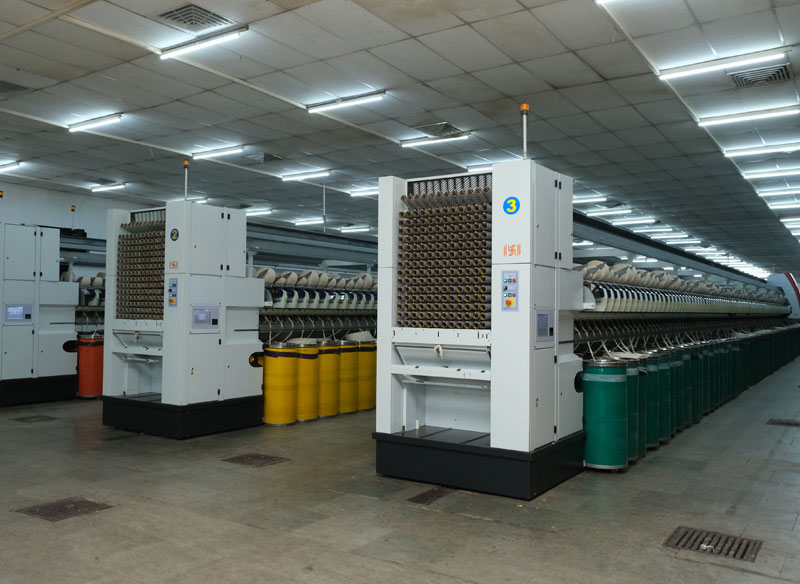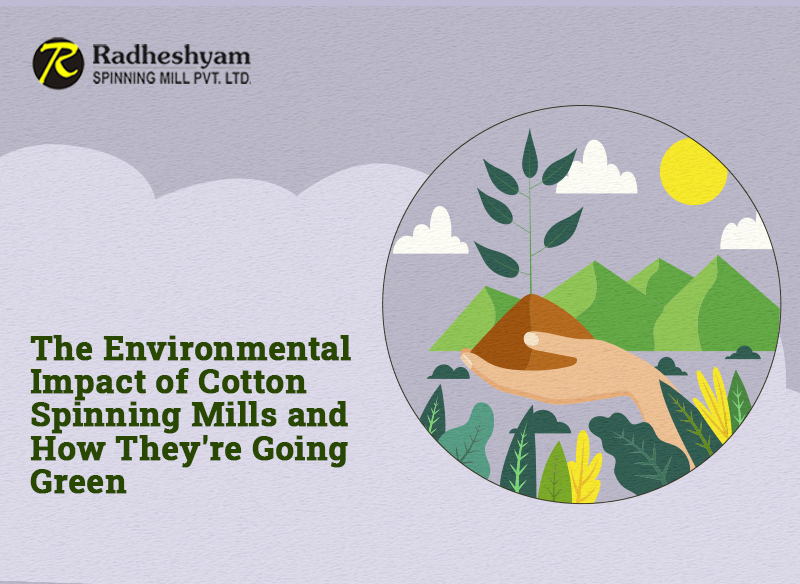22 Jan, 2026

Why Choosing the Right Spinning Mill Can Make or Break Your Textile Business
It is within the textile business where the value of your end product rests in an extremely important choice: picking the perfect spinning mill. It can make or break your business since the spinning mill is the epicentre of yarn production and has a direct impact on the quality and cost of fabrics and customer satisfaction. An appropriate selection of spinning mill ensures consistency, efficiency, and scalability, but an inappropriate selection results in delays, defects, and expenses. Let us describe why and how this is so very important a decision and how to get it right for your textile company.
The Role of a Spinning Mill in Textile Manufacturing
A spinning mill produces raw materials—synthetics, wool, or cotton—into yarn, raw material from which all textiles are created. The processes include cleaning, carding, drawing, and spinning the fibres into threads of varying strengths and sizes. Based on the yarn type that a spinning mill makes, the final fabric’s texture, strength, and look will be determined. Whether making clothing, domestic goods, or industrial cloth, whatever the spinning mill makes serves as the foundation of all other processes.
Apart from quality, spinning mills dictate production levels and timelines. A good mill provides yarn on time, and you are able to meet deadline. In contrast, a bad mill with incompetent administration or antique equipment makes you waste time or order. Second, yarn costing dictates the policy of pricing. A cost-oriented mill that reduces quality to survive is still making profit, but a cut corner mill may result in lower quality yarn and return/complaint customers.
Quality Control: The Secret to a Quality Spinning Mill
Attention to quality control is maybe the most important consideration when selecting a spinning mill. An excellent mill invests in high-end machinery and experienced engineers to deliver uniform yarn. For instance, sophisticated spinning machinery such as ring spinning or open-end spinning can spin yarns of particular specifications such as smoothness or strength according to your requirement. Factories that take proper care to keep their machines in good condition and also renovate the same are less probable to manufacture defective yarn, which will lead to faults such as pilling of the fabrics or defective seams.
Efficiency and Scalability for Long-Term Success
The efficiency and scalability of a spinning mill to conduct business-sensibly is yet another make-or-break factor. Efficient mills streamline processes to eliminate waste and energy, thereby competitive prices for you. They are also able to take large orders without sacrificing quality, allowing you to cope with increasing demand as your business grows.
Scalability also helps companies who would like to create new product lines or new markets. A versatile manufacturing capacity spinning mill can be transformed to change yarn qualities like count, twist, or blend for another intention. A mill that can shift effortlessly from making fine yarn for upscale fashion clothing to coarse yarn for furniture, for instance, provides you with flexibility without buying from various sources.
The Significance of Reliability and Communication
Reliability is not an option when selecting a spinning mill. A reliable mill keeps to delivery timelines, pre-notifies, and resolves issues in time. Such reliability wins your trust, and you can plan production and complete orders with confidence. For instance, a mill that gives regular order status or pre-notifies you about potential delays enables you to manage expectations and have smooth operations.
Clear communication is equally vital. A spinning mill that understands your technical specifications and business goals can tailor its services to meet your needs. They should be responsive to inquiries and open to collaboration, whether you’re discussing yarn customization or troubleshooting a problem. In contrast, a mill with poor communication can lead to misunderstandings, such as producing yarn that doesn’t match your requirements, wasting time and resources.
Selecting the Appropriate Spinning Mill for Your Business
Selecting an appropriate spinning mill demands thorough scrutiny of several factors: efficiency, scalability, dependability, communication, quality control, and sustainability. Begin by identifying your company’s specific needs, i.e., yarn type, production size, and lead times. Next, scrutinize possible mills, their capacity, reputation, and culture.
Don’t rush in. Request them to send them some samples of their yarn to test for quality and consistency. Interview the team in the mill for lengthy discussions to gauge their experience and reaction time. Where feasible, attempt to negotiate a trial order to experiment with them prior to committing to a long-term business alliance.
Lastly, the correct spinning mill is not only a supplier—but a strategic partner which can take your textile company ahead. Spending time and effort to select it positions your business for success, creating high-quality products that satisfy the consumers’ demands and drive growth. The incorrect choice, conversely, generates delays that are difficult to overcome. Make the decision carefully, and your business will be blessed for years to come.




